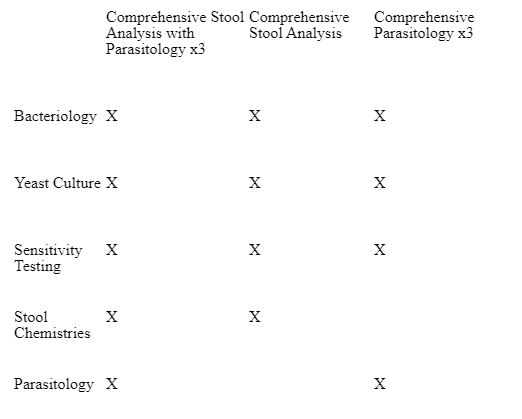Individual Lab Tests
Recommended lab Panels
Lab testing offers powerful insight into your health & wellness.
Dr. Laurie Goldman recommends the following laboratory tests. Please select a category to view available tests.
Heavy Metals
Elements
Cardiovascular
Stool Analysis w/ Parasitology
Autoimmune
Neurological
Thyroid
Mycotoxins
Toxic Chemicals
Organic Acids
Heavy Metals
The Fundamental Heavy Metals Panel includes: Mercury, Cadmium, Lead, Arsenic
Cost: $199 | Click to Order Test
HIDDEN - Do Not Delete
Detailed Test Description
The Fundamental Heavy Metals Panel includes: Mercury, Cadmium, Lead, Arsenic
Mercury: Used to identify an abnormally high amount of mercury in the blood. It can also be used to evaluate individuals who may have been exposed to mercury in the workplace. Practitioners will use this test to determine whether a patient has been affected by acute exposure (short term) or chronic exposure (long term) to Mercury.
Cadmium: Monitor recent or acute exposure to cadmium.
Lead: Used to monitor the exposure of lead in adults. A very small amount of lead is stored in your bones while the rest is excreted through the urine and feces.
Arsenic: Detection of acute or very recent arsenic exposure.
**Note: All laboratory testing requires an authorizing physician. DHA Laboratory offers a patient direct program that partners you with an authorizing physician. If you have any additional questions regarding the availability of testing, please contact our laboratory by telephone or email.**
Fundamental Elements
The Fundamental Elements Panel includes: B12 & Folate, Iron & TIBC, CBC w/ Differential, Ferritin
Cost: $99 | Click to Order Test
HIDDEN - Do Not Delete
Detailed Test Description
The Fundamental Elements Panel includes: B12 & Folate, Iron & TIBC, CBC w/ Differential, Ferritin
Vitamin B12: Detect B12 deficiency as in pernicious anemia; diagnose folic acid deficiency; evaluate hypersegmentation of granulocyte nuclei; follow up MCV >100; diagnose macrocytic anemia; diagnose megaloblastic anemia; evaluate alcoholism, prenatal care; evaluate malabsorption, neurological disorders, or the elevation of B12 as seen in liver cell damage or myeloid leukemia.
Folate: A vitamin that unfortunately cannot be produced by the body. The only way to gain this vitamin is through food. Folate is essential for RBC formation and also for the repair of tissues and cells.
Folate (Folic Acid) test use:
- Detect folate deficiency
- Monitor therapy with folate
- Evaluate megaloblastic and macrocytic anemia
- Evaluate alcoholic patients
Testing the folic acid level is primarily used in the diagnosis of megaloblastic anemia.
Iron & TIBC: Used to aid in the evaluation of a number of conditions involved with red cell production and destruction, iron transport, or iron metabolism. This will assist your physician in differentiating between different types of anemia. May also be used to help diagnose hemochromatosis (iron overload). High levels of iron are associated with kidney/liver disease and a deficiency in vitamin B6. Low iron levels have symptoms including fatigue, headaches, or muscle pain.
CBC w/ Differential:
The complete blood count (CBC) is often used as a broad screening test to determine an individual’s general health status. It can be used to:
- Screen for a wide range of conditions and diseases
- Help diagnose various conditions, such as anemia, infection, inflammation, bleeding disorder or leukemia, to name just a few
- Monitor the condition and/or effectiveness of treatment after a diagnosis is established
- Monitor treatment that is known to affect blood cells, such as chemotherapy or radiation therapy
Ferritin: The ferritin test is used to evaluate an individual’s iron levels in the body. Ferritin is often paired with an iron test and also a TIBC test. Ferritin levels correlate with and are useful in evaluation of total body storage iron. From this test you will be able to identify if you are deficient or high in iron levels.
**Note: All laboratory testing requires an authorizing physician. DHA Laboratory offers a patient direct program that partners you with an authorizing physician. If you have any additional questions regarding the availability of testing, please contact our laboratory by telephone or email.**
Advanced Cardiovascular Risk
The Fundamental Advanced Cardiovascular Risk Panel includes: Low-density Lipoprotein Particle Number (LDL-P)
Cost: $99 | Click to Order Test
HIDDEN - Do Not Delete
Detailed Test Description
The Fundamental Advanced Cardiovascular Risk Panel includes: Low-density Lipoprotein Particle Number (LDL-P)
LDL-P: NMR LDL-P is a management tool used in appropriate high-risk patients (type 2 diabetes mellitus, metabolic syndrome, CVD risk equivalent, statin-treated patients) to adjudicate response to treatment and guide adjustment in therapy. It is used in conjunction with other lipid measurements and clinical evaluation to aid in the management of lipoprotein disorders associated with cardiovascular disease.
**Note: All laboratory testing requires an authorizing physician. DHA Laboratory offers a patient direct program that partners you with an authorizing physician. If you have any additional questions regarding the availability of testing, please contact our laboratory by telephone or email.**
Click to Order Fundamental Advanced Cardiovascular Risk Panel
Fundamental Autoimmune Panel
The Fundamental Autoimmune Panel Includes: Celiac Ab tTF TIgA w/Reflex, ANA Panel w/ Reflex
Cost: $149 | Click to Order Test
HIDDEN - Do Not Delete
Detailed Test Description
The Fundamental Autoimmune Panel includes: Celiac Ab tTF TIgA w/Reflex, ANA Panel w/ Reflex
Celiac Ab tTF TIgA w/Reflex: Aids in the diagnosis of gluten-sensitive enteropathies.
ANA Panel w/ Reflex: Used to detect antibodies to nuclear antigens. Both males and females that are older than 80 years of age have a 50% incidence of low titer ANA. Various medications can induce a “lupoid” condition and elevated ANA titers. Usually, the titer decreases following removal of the drug.
**Note: All laboratory testing requires an authorizing physician. DHA Laboratory offers a patient direct program that partners you with an authorizing physician. If you have any additional questions regarding the availability of testing, please contact our laboratory by telephone or email.**
Fundamental Neuro Panel
The Fundamental Neuro Panel Includes: Copper Serum, Zinc Plasma, Ceruloplasmin
Cost: $149 | Click to Order Test
HIDDEN - Do Not Delete
Detailed Test Description
The Fundamental Neuro Panel Includes: Copper Serum, Zinc Plasma, Ceruloplasmin
Copper Serum: A highly reliable blood test that directly relates to brain chemistry. Elevated copper levels can alter the brains function, specifically the activity of dopamine and norepinephrine. Copper plays a large role in the metabolism of dopamine and the synthesis of norepinephrine. In turn, elevated copper levels lower dopamine levels and raise levels of norepinephrine. Imbalances in these essential brain chemicals have been related to paranoid schizophrenia, bi-polar disorder, postpartum depression, ADD, ADHD, autism, and violent aggressive behavior. Copper serum levels can single handedly be the root cause of an individual condition, but elevated copper serum levels are also known to cause zinc levels to deplete and oxidative stress to rise.
Zinc Plasma: A measurement that is closely correlated to biochemistry, and more specifically brain chemistry. Functional levels of zinc, along with a copper/zinc ratio, are frequently performed as markers for specific neuro activity. Zinc plasma is also used to monitor exposure to zinc; evaluate suspected nutritional inadequacy, especially in enteral or parental nutrition, critically ill or burn patients; cases of diabetes or delayed wound healing; growth retardation; follow therapy.
Ceruloplasmin: Used in the evaluation of oxidative stress. When paired with copper, it is used to calculate free copper. When paired with other blood or urine copper tests, ceruloplasmin is used to help diagnose Wilson’s disease. This is due to a decreased ability to incorporate copper into apoceruloplasmin. In turn, free copper levels in plasma and tissue are greatly increased, especially in the liver and brain. An estimated 95% of copper in the blood is bound to ceruloplasmin. As a result, only a very small amount of copper is found in the blood in an unbound or free state.
**Note: All laboratory testing requires an authorizing physician. DHA Laboratory offers a patient direct program that partners you with an authorizing physician. If you have any additional questions regarding the availability of testing, please contact our laboratory by telephone or email.**
Fundamental Thyroid Panel
The Fundamental Thyroid Panel Includes: TSH, Free T3, Free T4, Total T3, Reverse T3, TPO ab, Thyroglobulin ab
Cost: $199 | Click to Order Test
HIDDEN - Do Not Delete
Detailed Test Description
The Fundamental Thyroid Panel Includes: TSH, Free T3, Free T4, Total T3, Reverse T3, TPO ab, Thyroglobulin ab
TSH (thyroid stimulating hormone) is the most common test used to evaluate thyroid function and symptoms related to a thyroid disorder such as hyperthyroidism, or hypothyroidism. Produced by the pituitary gland, the primary role of TSH in the body is to stabilize amounts of T4 (thyroxine) and T3 (triiodothyronine) in the blood. This process controls how much energy the body burns.
Free T3 (free triiodothyronine) is used to evaluate thyroid function and also in the assessment of abnormal binding protein disorders. Measurement of Free T3 is valuable in confirming the diagnosis of hyperthyroidism, when an elevated free or total thyroxine level is found. Abnormal total and free triiodothyronine concentrations may appear in T3 toxicosis, in the presence of normal thyroxine levels. The levels of free T3 are unaffected by carrier protein variation.
Free (Thyroxine) T4 can sometimes be indicated when binding globulin (TBG) problems are perceived, or when conventional test results appear inconsistent with clinical observations. It is common in subjects with high thyroxine-binding globulin hormone binding who are euthyroid (ie, free thyroxine should be normal in non-thyroidal diseases). It should appear normal in familial dysalbuminemic hyperthyroxinemia.
T3 Total (Triiodothyronine) is needed in patients who have clinical evidence for hyperthyroidism, in whom the usual thyroid profile result is reported as normal or borderline. The T3 Total test is recommended for patients with supraventricular tachycardia, for patients with fatigue and weight loss not otherwise explained, or for patients with proximal myopathy who also have T4 levels that are not elevated.
Reverse T3 is a biologically inactive form of T3. When T4 is converted to T3 in the body, a certain percentage of the T3 is in the form of RT3. When the body is under stress, thyroid hormone levels may be outside of normal ranges even though there is no thyroid disease present. RT3 may be elevated in non-thyroidal conditions, particularly the stress of illness.
Thyroid Peroxidase (TPO) Ab is used in the differential diagnosis of hypothyroidism and thyroiditis.
Thyroglobulin Ab is primarily used to detect and confirm autoimmune thyroiditis, Hashimoto thyroiditis.
**Note: All laboratory testing requires an authorizing physician. DHA Laboratory offers a patient direct program that partners you with an authorizing physician. If you have any additional questions regarding the availability of testing, please contact our laboratory by telephone or email.**
Fundamental MYCO
The MycoTox Profile screens for eleven different mycotoxins, from 40 species of mold, in one urine sample.
Cost: $399 | Click to Order Test
HIDDEN - Do Not Delete
Detailed Test Description
The MycoTox Profile screens for eleven different mycotoxins, from 40 species of mold, in one urine sample.
Mycotoxins are some of the most prevalent toxins in the environment. Mycotoxins are produced by fungi like mold, which can contaminate buildings and foods we eat. Most mycotoxin exposures are through food ingestion or airborne exposure.
There are many serious health conditions linked to mycotoxin exposure such as fever, pneumonia, heart disease, asthma, cancer, memory loss, vision loss, chronic fatigue, depression, ADHD, and anxiety. With the MycoTOX Profile, mycotoxin exposures can be identified and make effective treatment recommendations for detoxification.
**Note: All laboratory testing requires an authorizing physician. DHA Laboratory offers a patient direct program that partners you with an authorizing physician. If you have any additional questions regarding the availability of testing, please contact our laboratory by telephone or email.**
Fundamental TOX
The Tox Profile screens for the presence of 173 different toxic chemicals.
Cost: $399 | Click to Order Test
HIDDEN - Do Not Delete
Detailed Test Description
The GPL – Tox Profile is a toxic non-metal chemical profile that screens for the presence of 173 different toxic chemicals including organophosphate pesticides, phthalates, benzene, xylene, vinyl chloride, pyrethroid insecticides, acrylamide, perchlorate, diphenyl phosphate, ethylene oxide, acrylonitrile, and more. This profile also includes Tiglylglycine (TG), a marker for mitochondrial disorders resulting from mutations of mitochondrial DNA. These mutations can be caused by exposure to toxic chemicals, infections, inflammation, and nutritional deficiencies.
**Note: All laboratory testing requires an authorizing physician. DHA Laboratory offers a patient direct program that partners you with an authorizing physician. If you have any additional questions regarding the availability of testing, please contact our laboratory by telephone or email.**
Fundamental OAT
The Organic Acids Test (OAT) provides a comprehensive analysis of intestinal yeast and bacteria.
Cost: $399 | Click to Order Test
HIDDEN - Do Not Delete
Detailed Test Description
The Organic Acids Test (OAT) provides a comprehensive analysis of intestinal yeast and bacteria. Unusually high levels of these microorganisms often cause or increase the severity of behavior disorders. These disorders include, but are not limited to: hyperactivity, movement disorders, and immune function. An individual with neurological disorders or chronic illness will often excrete several abnormal organic acids in urine. This may be due to oral antibiotics, immune deficiencies, infections, high sugar diets, or genetics.
The Organic Acids Test includes markers for mineral and vitamin levels, oxidative stress, and neurotransmitter levels. It also includes markers for oxalates (highly associated with a variety of chronic illnesses).
The primary forms of treatment for any abnormalities found in the Organic Acids Test include supplements (vitamins and antioxidants), or a change in diet. Patients who have gone through treatment have noted remarkable improvement in symptoms including: increased energy, increased concentration, decreased fatigue, regular bowel function, improved verbal skills, a decrease in hyperactivity, and decreased abdominal pain.
Practitioners who are performing followup testing to the OAT will order the Microbial Organic Acids Test (MOAT). This is due to the MOAT‘s ability to asses treatment, and monitor or identify specific abnormalities, or certain microbial imbalances.
The OAT test is an at home urine collection kit and is available in most states, and for international purchase. Price varies for international OAT kits – please contact our laboratory for more information on international kits.
**Note: All laboratory testing requires an authorizing physician. DHA Laboratory offers a patient direct program that partners you with an authorizing physician. If you have any additional questions regarding the availability of testing, please contact our laboratory by telephone or email.**
Stool Analysis w/ Parasitology
The Comprehensive Stool Analysis with Parasitology x 3 is an invaluable non-invasive diagnostic assessment that permits practitioners to objectively evaluate the status of beneficial and imbalanced commensal bacteria, pathogenic bacteria, yeast/fungus and parasites.
Cost: $399 | Click to Order Test
HIDDEN - Do Not Delete
Detailed Test Description
The Comprehensive Stool Analysis w/ Parasitology X3 is useful for:
- Gastrointestinal Symptoms
- Autoimmune Disease
- IBD/IBS
- Inflammation
- Parasite Identification
- Food Sensitivities
- Nutritional Deficiencies
- Joint Pain
- Skin Conditions (Atopic Dermatitis)
Detailed Information:
The Comprehensive Stool Analysis with Parasitology x 3 is an invaluable non-invasive diagnostic assessment that permits practitioners to objectively evaluate the status of beneficial and imbalanced commensal bacteria, pathogenic bacteria, yeast/fungus and parasites. Precise identification of pathogenic species and susceptibility testing greatly facilitates selection of the most appropriate pharmaceutical or natural treatment agents.
Important information regarding the efficiency of digestion and absorption can be gleaned from the measurement of the fecal levels of elastase (pancreatic exocrine sufficiency), fat, muscle and vegetable fibers, and carbohydrates. Inflammation can significantly increase intestinal permeability and compromise assimilation of nutrients. The extent of inflammation, whether caused by pathogens or inflammatory bowel disease (IBD), can be assessed and monitored by examination of the levels of biomarkers such as lysozyme, lactoferrin, white blood cells and mucus. These markers can be used to differentiate between inflammation associated with potentially life-threatening inflammatory bowel disease (IBD), which requires lifelong treatment, and less severe inflammation that can be associated with irritable bowel syndrome (IBS) which is frequently due to the presence of enteroinvasive pathogens. Lactoferrin is only markedly elevated prior to and during the active phases of IBD, but not with IBS. Monitoring fecal lactoferrin levels in patients with IBD can therefore facilitate timely treatment of IBD, and the test can be ordered separately. Since the vast majority of secretory IgA (sIgA) is normally present in the GI tract, where it prevents binding of pathogens and antigens to the mucosal membrane, it is essential to know the status of sIgA in the gut. sIgA is the only bona fide marker of humoral immune status in the GI tract.
Cornerstones of good health include proper digestion of food, assimilation of nutrients, and exclusion of pathogens and timely elimination of waste. To obtain benefits from food that is consumed, nutrients must be appropriately digested and then efficiently absorbed into portal circulation. Microbes, larger-sized particles of fiber, and undigested foodstuffs should remain within the intestinal lumen. Poor digestion and malabsorption of vital nutrients can contribute to degenerative diseases, compromised immune status and nutritional deficiencies. Impairment of the highly specific nutrient uptake processes, or compromised GI barrier function, as in “leaky gut syndrome,” can result from a number of causes including:
- Low gastric acid production
- Chronic maldigestion
- Food allergen impact on bowel absorptive surfaces
- Bacterial overgrowth or imbalances (dysbiosis)
- Pathogenic bacteria, yeast or parasites and related toxic irritants
- The use of NSAIDs and antibiotics
Impairment of intestinal functions can contribute to the development of food allergies, systemic illnesses, autoimmune disease, and toxic overload from substances that are usually kept in the confines of the bowel for elimination. Efficient remediation of GI dysfunctions incorporates a comprehensive guided approach that should include consideration of elimination of pathogens and exposure to irritants, supplementation of hydrochloric acid, pancreatic enzymes and pre- and probiotics, and repair of the mucosal barrier.

**Note: All laboratory testing requires an authorizing physician. DHA Laboratory offers a patient direct program that partners you with an authorizing physician. If you have any additional questions regarding the availability of testing, please contact our laboratory by telephone or email.**
Click to Order Fundamental Comprehensive Stool Analysis w/ Parasitology X3
Become a Member
Clear Path Wellness patients, get exclusive access to videos and articles that can guide you to optimal health and wellness.
What Our Patients Are Saying
Let's connect

Clear Path Wellness is Chicago-Area's Premier Functional Medicine & Holistic Psychiatry Practice
Arlington Heights, IL
Chicago Area
- Online Therapy
- Phone Therapy
- Telehealth
- Telemedicine
Phone & Fax
F: 847-418-8949
* Information and products listed on this website are not intended to treat, cure, prevent or diagnose any disease or condition and are provided for educational purposes only. It is not intended as a substitute for professional medical. Always consult your doctor with questions regarding your health and treatment.




